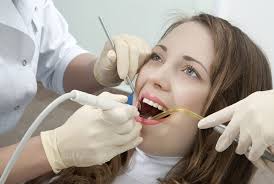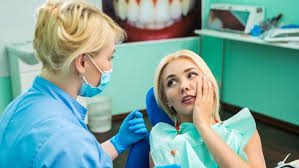What is the most common dental emergency?
You brush your teeth at least twice a day. You even floss and gargle with mouthwash every night. Doing so will save you from a myriad of dental problems. However, some instances call for emergency dental procedures. Studies show that people lose around 320 million work or school hours due to dental issues. In addition, around 92 million of those hours involved dental emergencies. Unfortunately, a lot of people still don’t know if their case is an emergency or not. Thus, they tend to delay their visit to the dentist.
This equates to more pain and more expenses. So what are the most common dental emergencies? Continue reading below and let’s zoom in on the conditions that require emergency treatments.
Cracked Tooth
There are many different causes for a cracked tooth. Sometimes, you bite something hard like ice, nuts, or bones. When you grind your teeth at night, you are also putting pressure on your teeth. This can also lead to your teeth cracking. When you hit the age of 50, your teeth naturally weaken. Regardless of the reason, you need to go to a dentist for proper treatment. If you cannot drive to the dentist during the moment, you can put some ice packs if there’s swelling on your face. You can also take some pain medications to reduce the discomfort.
Trauma
Trauma is a common dental emergency that often leads to tooth loss. Accidents can cause trauma. They can dislodge the teeth and cause bleeding. Interestingly, you can still salvage the dislodged tooth. But the key is timeliness. If you lost a tooth, rinse it off using water or milk. Take the tooth and tuck it inside your cheek. This will keep the tooth and the root moisturized. Now head on to your dentist ASAP for assessment. An emergency dentist can provide a thorough assessment to see if they can still save your tooth. You can also expect them to stop the bleeding and treat the pain.
Severe Tooth Ache
Several causes lead to extreme tooth pain. Certain dental procedures can lead to severe toothache. This may last for several hours to a day or two. Sometimes, pulpal and gum abscess can also cause severe pain and discomfort. This will lead to painful chewing and biting. Inflammation on a wisdom tooth can also cause intense pain. All of these instances require emergency dental attention. Expect the dentist to examine your tooth. They will also give you some pain medications. Thereafter, they will explain your condition and the options available. They can perform a tooth extraction. They can also operate on the area to take out the abscess.

Jaw pain or broken jaw: don’t do anything before calling your dentist
Depending on what happened, especially if it’s a broken jaw, the best option is to see your dentist immediately. Take pain medication to ease the pain and put ice on your face to avoid swelling. It’s best to stay away from solid food until you see your dentist otherwise you’ll end up being in even more pain. In this dental emergency, it’s best for your dentist to guide you on what to do for a broken jaw or jaw pain.
Bleeding
Bleeding in your oral cavity should not be taken lightly. If you see blood on your dental floss, it’s usually an early sign of gum disease or gingivitis. While not an emergency, it should be examined sooner rather than later to prevent further problems. However, blood in your saliva might indicate an advanced stage of cancer or an extremely advanced stage of gum disease. Bleeding from the mouth isn’t normal. Even if you’ve had a tooth extracted, bleeding that won’t stop is a problem! Keep your head elevated and call your dentist right away.

Temporary Dental Crown Comes Off
If you realize your temporary crown is coming off, try to catch it before you swallow it or lose it. Put a tiny dab of Vaseline on the back of the crown to temporarily bond it to your tooth, and make sure not to bite down too hard. Schedule an appointment with your dentist as soon as possible to replace the crown.
Painful or Infected Tooth
If you think you have any type of oral infection, you need to get help as quickly as possible. Call your dentist immediately so they can bring you in. No matter what, do not try to treat the infection yourself.

Preventing a Dental Emergency.
Accidents are difficult to avoid, but there are steps you can take to minimize the impact or lower the chances of your child experiencing a dental emergency. Always have your child wear a sports mouthguard when playing a contact sport. A custom-fitted mouthguard provides the best protection. This will minimize or prevent damage to their teeth and soft tissues.
- Avoid chewing hard things that can crack the teeth, such as ice and hard candy. This includes cutting things with teeth. Be sure to use scissors to avoid injury to your teeth.
- Good oral hygiene will help your child’s teeth stay healthy, and less likely to become damaged. Regular dental checkups will help us identify and correct problems long before they can become an emergency.
Mouth Sores
There are a variety of common dental emergencies that are considered mouth sores. They can range from canker sores to food, hand, and mouth disease. However, a sore in your mouth can also be a sign of gum disease. While mouth sores are not life-threatening, they can be painful. If you’re experiencing pain due to a mouth sore, try taking some Tylenol. You can also wash your mouth out with hydrogen peroxide. It’s a natural mouthwash and will kill any germs. Don’t swallow any of it, though. There are some over-the-counter pain remedies you can find at your local pharmacy. Contact your dentist and schedule an appointment if you notice the sore isn’t healing properly or if it gets progressively worse.